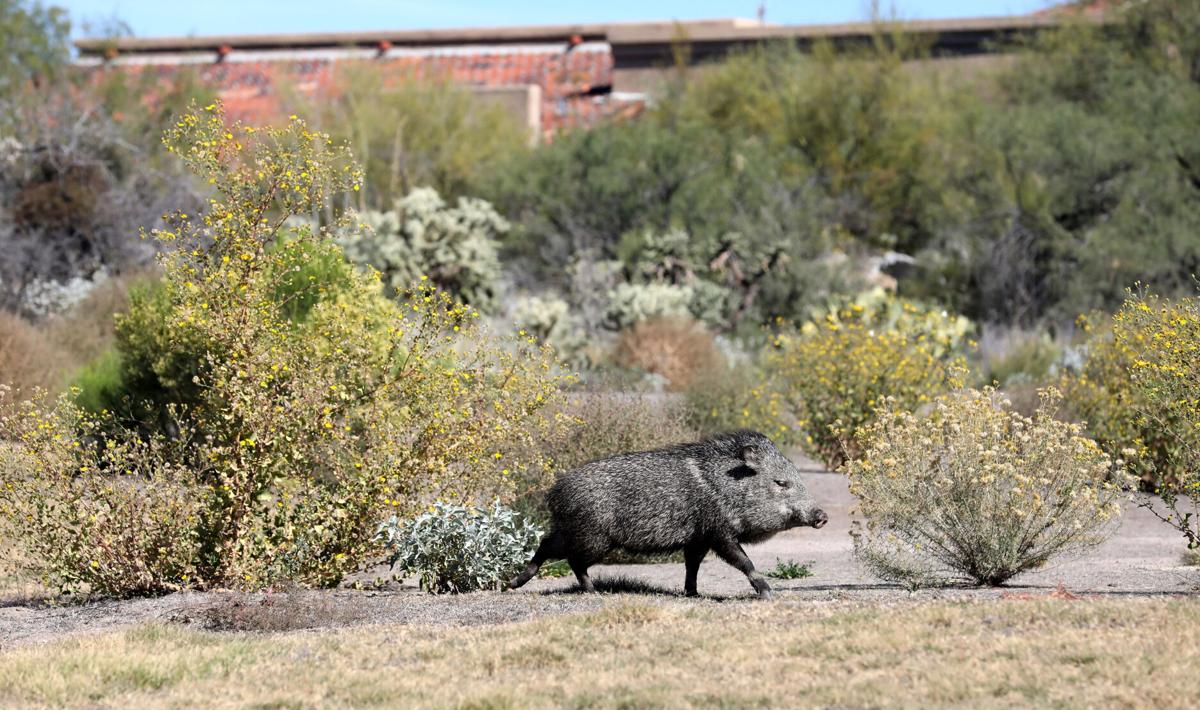Residents of Oro Valley and their pets reported being attacked by javelinas in four separate instances in the last month, according to the Arizona Game and Fish Department.
In one incident, a dog was killed.
Between the beginning of October to this week, residents in Rancho Vistoso, El Conqistador Golf Club and Oro Valley Country Club reported javelinas charging or attacking them or their pets, according to Mark Hart, a spokesman for Arizona Game and Fish.
“What’s unusual about this is the grouping of four (attacks) over four corresponding weeks in the same community,” Hart said. “We’ve had spikes of javelina activity in the fall elsewhere . . . we have not had this many attacks and injuries in such a close period of time.”
Aggressive when sensing a threat
Javelinas, the hoglike peccaries known for their so-ugly-they’re-cute looks and horrendous stink, are native to the Sonoran Desert and are likelier to be seen near dawn and dusk, especially during the cooler times of the year, Hart noted. They also have terrible eyesight and a keen sense of smell.
While not normally aggressive toward humans or other larger animals, that can change when they sense a threat.
Since javelinas have such poor eyesight, Hart said they may be attracted to the different smell of humans, or if someone is walking a dog, might become defensive by mistaking the dog for a coyote.
“That is a common scenario,” Hart said. “Where we have javelina that will charge dogs, mistaking them for coyotes. Then the pet owner gets involved to break up the fight and gets hurt.”
The furry youngster has been at Tucson Wildlife Center for about two weeks recovering from pneumonia and a low body temperature, but is reportedly on the road to recovery.
According to TWC, javelina enjoy eating potatoes, apples, zucchinis, squash, watermelons, and pumpkins, among other foods. Leftover pumpkins from this Halloween season that are free of mold and chemicals can be donated to TWC for the javelina.
TWC is asking those wanting to donate their pumpkins to call ahead at (520)-290-9453 before bringing them to the center at 13275 E. Speedway Blvd.
Wildlife feeding could be factor
The reason behind the grouping of javelina attacks isn’t known, Hart said. However, he said he suspects that wildlife feeding has something to do with it. Intentionally feeding wildlife is a crime in Arizona.
“It leads us to believe somewhere in the mix is wildlife feeding, because the javelina are persisting,” Hart said. “Or it could be they are habituated in their proximity to humans, we just can’t tell.”
Hart did say that anyone who encounters javelinas while out on a walk or hike should turn around, especially if they are with a dog.
Anyone who has a more significant encounter with a javelina or other wild animal should call 911 or animal control.
“Maybe also, for the time being, avoid those golf courses, which in a suburban environment, is a wide open space for javelina to travel through,” Hart said.





